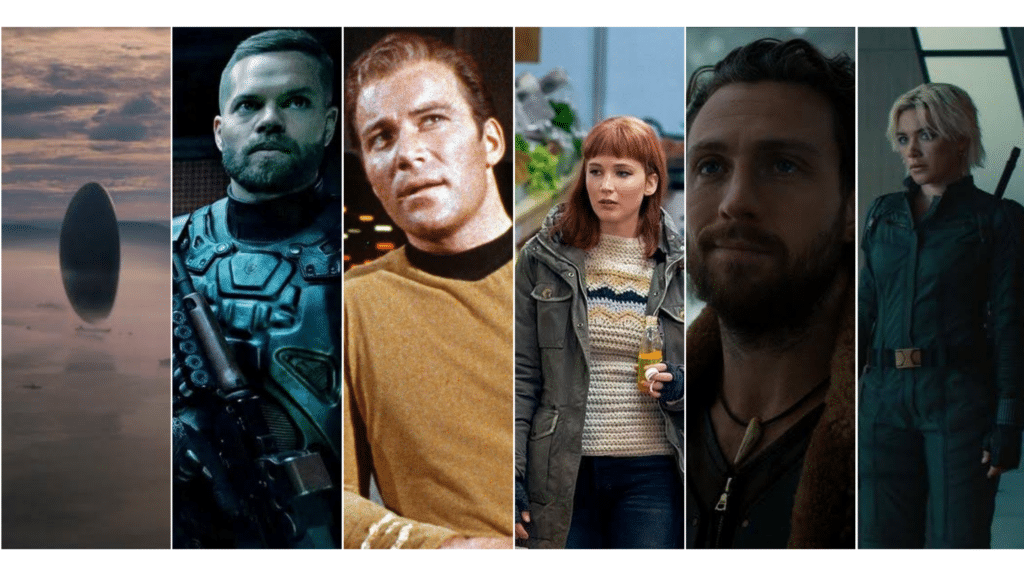
Why timing matters in sci-fi adaptations
Science fiction has long captivated audiences, combining the widest stretches of the human imagination with cultural and technological shifts. It’s often these shifts in the ‘real world’ that pave the way for particular movies or shows that wouldn’t have the same impact if they were made at any other time.Sci-fi can often feel timeless in its appeal – just look at the ongoing success of Star Wars (1977-Present) and Star Trek (1966-Present). The success of an adaptation, whether from book to film/television or comic book to the big screen, can heavily depend on timing and when it’s first introduced to audiences.
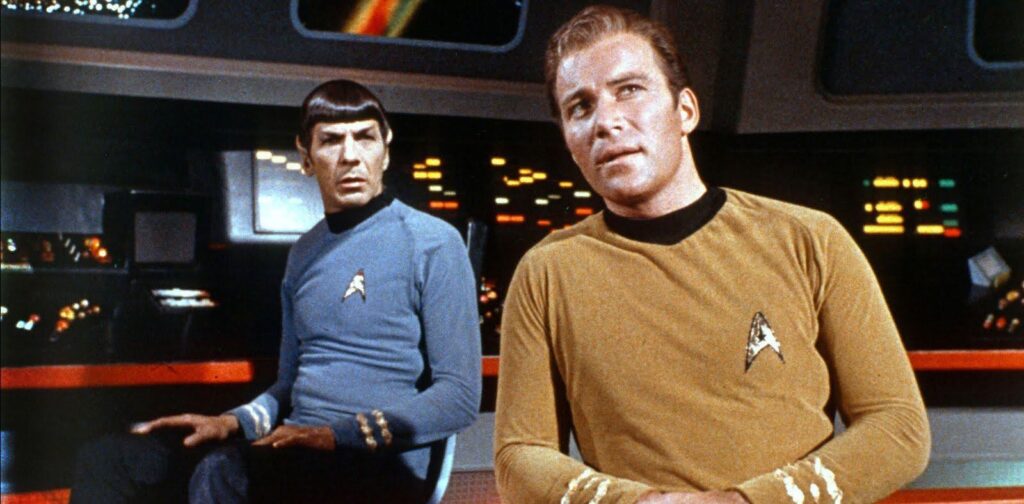
As sci-fi continues to be a huge Hollywood fixture, in today’s article, we will explore the world of sci-fi adaptations, discover the themes audiences are going crazy for, how adaptations come about in the first place, and what we can learn from them as screenwriters.
Hollywood’s recent sci-fi adaptation boom
As a genre, sci-fi has this strange yet exhilarating ability to mirror humanity’s greatest hopes, fears, and unanswered questions. From exploring dystopian futures, meeting alien civilizations, discovering advancements in artificial intelligence, or beaming across time and space at warp speed, it can send our imaginations wild.
While we won’t always recognize all these elements of sci-fi (let’s face it, most seem beyond our reach!), they often comment on real-world issues. This is where timing is crucial, especially when adapting works that already exist in another format.
As society evolves, so does our relationship with technology, politics, and existential questions about the future. When such shifts occur, sci-fi themes that once seemed far-fetched can become strangely relatable.
For example, the exploration of the possibilities of artificial intelligence in 1982’s Blade Runner about a future where AI blurs the lines between human and machine doesn’t seem as implausible as it may have done when the film first released.
Today, more recent stories, such as those of Black Mirror (2011-Present) and Ex Machina (2014), feel almost perceptive, reflecting very raw anxieties about how close we are to such revelations and potential problems.
Make your story stand out. Try Celtx today!
Another example of how close for comfort some past stories seem in the present day is Soylent Green (1973), which tapped into the themes of overpopulation and ecological collapse. Yes, the movie was provocative, but to audiences, it probably didn’t seem like an imminent threat. However, in today’s world, climate change and the very real results of that affect us every day. Newer adaptations of such themes, such as Snowpiercer (2013), adapted from the graphic novel Le Transperceneige (Lob, Legrand and Rochette – 1982) and The Wandering Earth (2019), adapted from the short story (Liu – 2000) of the same name, make it seem ever more real.
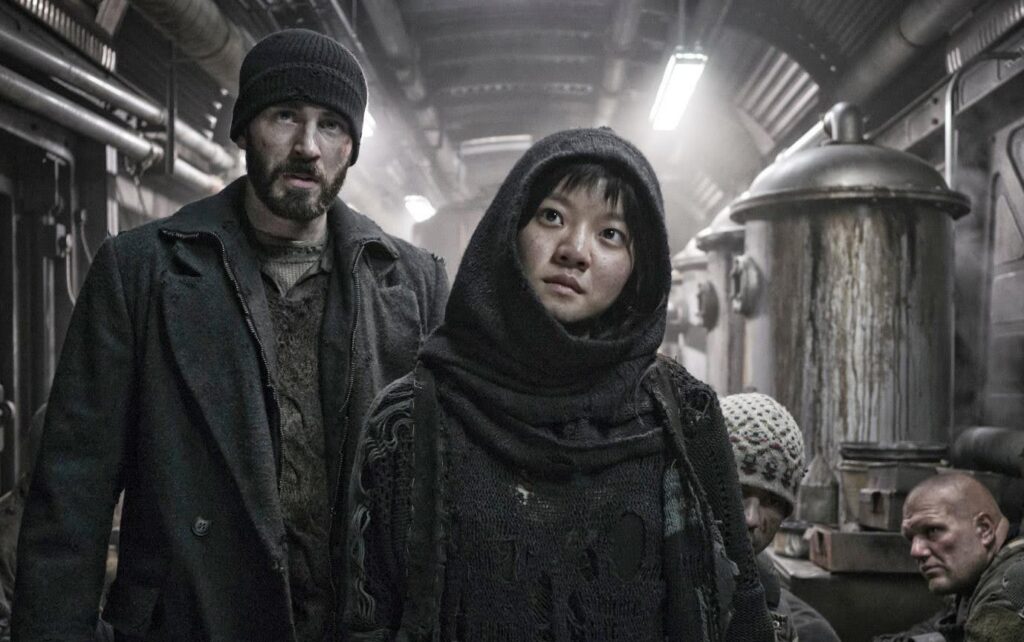
It’s clear Hollywood has always loved sci-fi, but as these issues become even more prevalent, we’re seeing a notable surge in big-budget, high-profile adaptations. Many of these are drawn from existing literary or comic book properties, which reflect on the collision of technology and modern concerns.
Let’s take a look at some of the highly anticipated adaptations coming through the ranks.
Mickey7
Based on Edward Ashton’s novel, the story centers around Mickey, a disposable employee on a dangerous space colony mission. He’s disposable because every time he dies, he is cloned.
With the book first published in 2022, coupled with real-world advancements in cloning, AI, and space exploration at the forefront of scientific discussion, Mickey7 highlights concerns surrounding the expendability of human labor, cloning ethics, and the dangers of corporate colonization in space.Due to be released in January 2025 under the title, Mickey 17, director Bong Joon-ho (Snowpiercer, Parasite) is set to change some elements of the original novel, which author Ashton is open to.

Thunderbolts*
With a wealth of comic book material from which to draw, the Marvel Universe will always have a piece of the sci-fi action. Also due in 2025, Thunderbolts* is based on the comic book series first appearing in 1997.
The movie will reflect the themes of the comics, exploring the idea of anti-heroes and moral ambiguity in a world increasingly concerned with justice, corruption, and the role of vigilante figures. The Thunderbolt team taps into contemporary skepticism around who modern society sees as heroes.
The rise of the internet and social media allows issues and news that would have been easily concealed in the past to be readily available to the masses. Since the comic’s release in the late 90s, the world’s population is more aware than ever before.
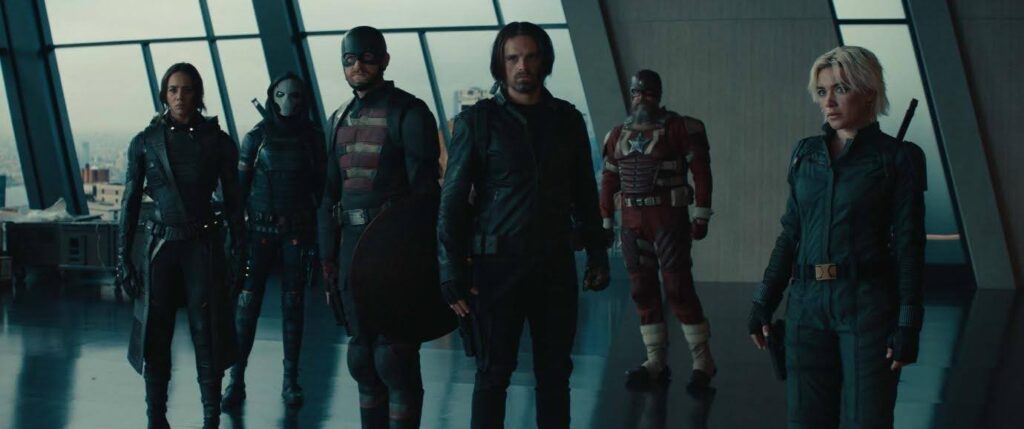
Kraven the Hunter
Another entry into Marvel’s ever-expanding universe, Kraven the Hunger (2024), is due to release at the end of the year. Yet the character first appeared in The Amazing Spiderman Comics in 1964, determined to defeat Spiderman and prove himself as the world’s greatest hunter.
The stories surrounding Kraven highlight environmental themes, with his continuous efforts to protect animals. In his standalone stories, Kraven doesn’t just hunt for sport, but protects the natural world from those who would harm it.
The movie will tap into a larger cultural conversation about conservation, environmental degradation, and ethical dilemmas surrounding our relationship with nature. With an expanding environmental movement and heightened awareness of climate change, Kraven the Hunter is set to be highly relevant in today’s world.

Bring your script to life.
Try celtx now!
Celtx’s tools make it easier to adapt, collaborate, and take your story to the next level.
Venom
Also based on Marvel comics, the Venom franchise has been hugely successful in recent years, blurring the lines between what makes a hero and what makes a villain. Not only does this highlight our current cultural fascination with complex characters.
The themes of power, control and morality have never been more relevant in our currently unstable world, with brutal battles grappling for power and control covering the front pages of our newspapers and television screens.
Venom: The Last Dance (2024) is the final installment in the Venom franchise, following Eddie and Venom as they’re both on the run from their separate worlds.

Of course, there are movies that don’t quite resonate, and could perhaps be considered as “too soon” for their audience, in terms of the themes they explored. Not all adaptations hit at the right cultural moment.
While Blade Runner (1982) is now one of the most influential sci-fi films of all time, it was met with mixed reviews and underperformed at the box office on initial release. The concerns of 1980s audiences may have felt far too removed from the future depiction of Los Angeles, teeming with advanced robotics and environmental decay.
However, as social concern grew regarding the future of humanity and technology, Blade Runner has since become a cultural criterion, offering poignant commentary on identity, technology and the environment.
This was also the case for 2006’s Children of Men, which wasn’t a success on first release. The movie portrays a world on the brink of collapse due to mass infertility. But as issues like the refugee crisis, governmental overreach, and environmental disasters grew, the movie gained a strong following in later years for its unsettlingly accurate depiction of a dystopian future.
Themes in sci-fi: what’s hot right now?
Of course, trends come and go with certain themes emerging as particularly relevant to modern audiences. Both popularity and relevance of theme contribute to what is ‘hot right now’.
Anthology series like Black Mirror (2011-Present) have the freedom to explore a wide range of themes, from the concept of surveillance and control through advanced technology to the erosion of personal freedom.
Artificial intelligence and its ethical implications are huge themes right now. 3 Body Problem (2024-Present) is adapted from the 2008 novel Remembrance of Earth’s Past (Cixin) and is a great example of how AI can cross cultural boundaries, but not without challenges.
The story centers around alien civilizations, advanced technology, and the long-term consequences of scientific discovery. But it depended on where you were in the world, as to the reception you sensed around you. In the West, the series was hailed as revolutionary, however, in China, outrage was sparked due to how the series portrayed certain historical events.
Even with some of the most successful stories, 3 Body Problem is a key example of where adaptations walk a fine line when releasing to global audiences. Cultural sensitivities vary across the world and can dramatically change how a story is perceived.
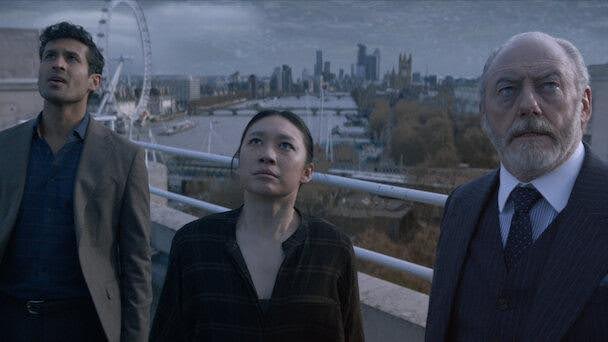
As we’ve seen with Snowpiercer and The Wandering Earth, environmental themes such as climate change and resource depletion resonate strongly with audiences, serving not just as entertainment, but also as cautionary tales of ignoring environmental issues.
Related Reading: Crafting Visual Masterpieces: Storyboarding Lessons from Alien: Romulus
When is the right time for your sci-fi story?
So, you’ve read a sci-fi story that you’re just dying to adapt into a screenplay? Or perhaps you’ve just started writing your own original sci-fi script? The key first question you need to ask yourself is whether now is the right time to do so. But how do we know when that ‘right time’ is?
Timing is everything, and with society’s concerns always evolving, there’s a lot to consider.
Emerging Technologies
Does the story explore technologies already shaping our world, or are on the horizon? Stories that focus on AI, biotechnology, space exploration, or VR can often feel well-timed due to their reflections on society’s trajectory.
Current Events
Does your story touch upon real-world events, either directly or thematically? Consider films like Don’t Look Up (2021), which brought climate change denial into question. It was an extremely relatable movie, tapping into the growing sense of frustration with political inaction on environmental issues.

Cultural Relevance
Whether your story questions identity, privacy, or inequality, does it resonate with what’s happening in the world right now? Sci-fi like Black Mirror feels timely, as its episodes explore scenarios that seem only a few steps away from our reality.
Speculative Realism
We sure are loving Black Mirror, aren’t we? But it’s the perfect example of presenting technologies that aren’t so far removed from what we’d expect in today’s world. They’re believable representations of what we already have. Consider how you could replicate this in your own work and ground your themes in reality.
Adapting someone else’s sci-fi property
Adaptations can present both opportunities and challenges. On the one hand, you’re working with material that already has a built-in fan base, which can help generate a buzz and a certain level of success, provided that you adapt it well.
On the other hand, you are limited by what you can do, especially if you diverge too far from the source material. Of course, it depends on how closely you work with the original author to determine how much movement you have.
Let’s return to Micky7 and Kraven the Hunter, two highly anticipated releases. In both cases, the challenge lies in staying true to the original story while ensuring it’s “big-screen friendly” and resonates with the target audience.
This can prove difficult when adapting stories with extremely long histories and large fan bases, as any perceived deviation from the source material can spark backlash both from the fans and from the creatives involved.
Take, Dune (1984) adapted by David Lynch from Frank Herbert’s original novel. While now viewed as a cult classic, and with a hugely successful modern adaptation, the original release was unsuccessful. Already considered one of the most significant sci-fi works, the 1965 Dune novel adaptation had high expectations attached.
While initially supportive of the project, Herbert was ultimately disappointed by the film’s final execution and how it handled the intricacies of the novel. Lynch’s directorial style just didn’t match Herbert’s writing. While some elements of the novel were sidelined or omitted altogether, cinematically these could have been argued as being necessary.
It could be argued that the original adaptation didn’t fit into Hollywood’s blockbuster-driven approach to sci-fi at the time. With big hits such as the original Star Wars (1977-1983) dominating the box office at the time, audiences weren’t necessarily ready for a film that demanded careful attention to political and ecological subtext, such as Dune.
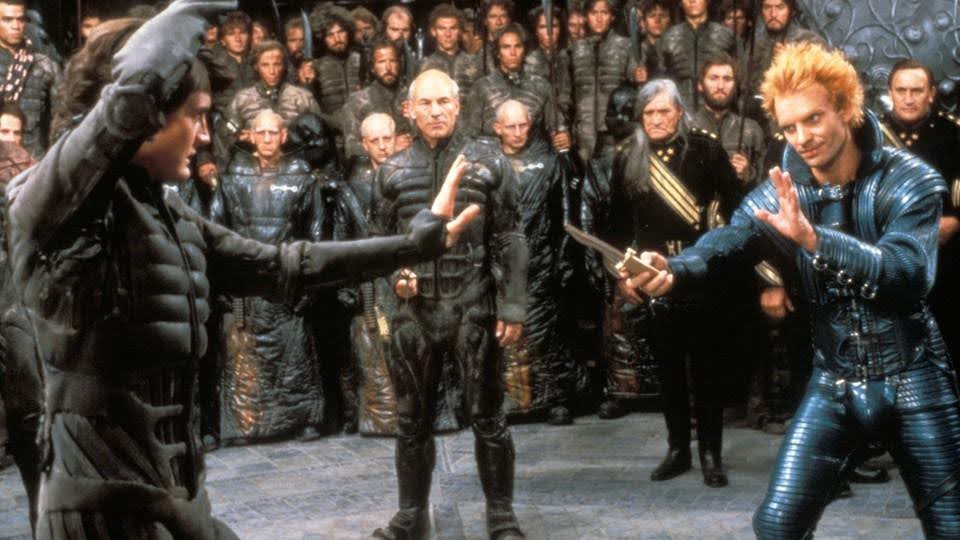
Lessons from recent sci-fi hits
As writers, there’s a great deal of inspiration we can take from recent sci-fi hits. Make sure to check out boxofficemojo.com to see how well your top sci-fi picks performed in the box office! Before we go, let’s look at how you can replicate the success of two of our favorites:
The Expanse (2015-2021)
Based On: Novel series by James S.A. Corey.
Themes: Political intrigue, class struggle, space exploration, resource wars.
Key Elements: Focused on the conflict between Earth, Mars and the Belt, the balance of power in a colonized solar system, and the ethics of space colonization.
Why did it succeed?: The series paralleled real-world tensions and class inconsistencies, while tapping into increased interest in space exploration and colonization narratives.
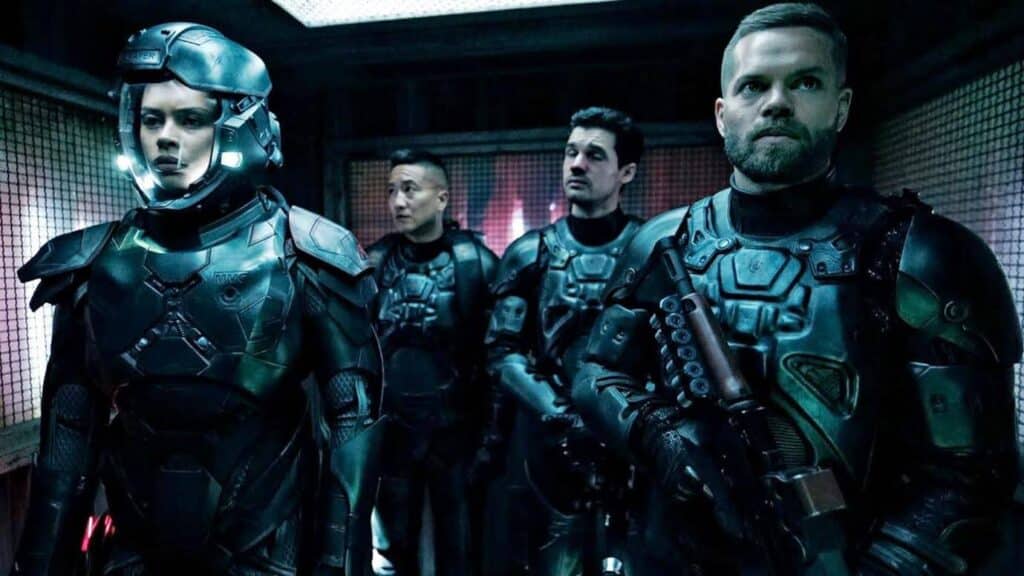
Arrival (2016)
Based On: Short story Story of Your Life by Ted Chiang
Themes: Communication, time, fate, human connection
Key Elements: Alien first contact, challenges of understanding a new language
Why did it succeed?: Focus on global miscommunication and cooperation, exploring complex philosophical questions about time and language.

In a world where technology and culture constantly evolve, the timing of a sci-fi adaptation can be crucial to its success. By capturing the right moment, when themes resonate most with modern audiences, filmmakers can elevate science fiction from mere entertainment to thought-provoking commentary. For us aspiring sci-fi writers, understanding current cultural concerns and technological advancements is key to crafting or adapting a relevant, timely sci-fi story that has lasting impact.
From science fiction to science fact, our comprehensive guide on how to write a sci-fi script will help you get started:
Beyond the Stars: How to Write a Science Fiction Script
Follow us on our socials for more tips, tricks, and conversation!
Not quite ready to come back to earth? Try these out-of-this-world articles next:
- What is a Motif in Film? Themes & Symbols Explained
- Why Storyboarding Still Matters in 2024 (Even with AI Tools)
- Internal vs. External Conflict: Why It Reigns Supreme in Storytelling

